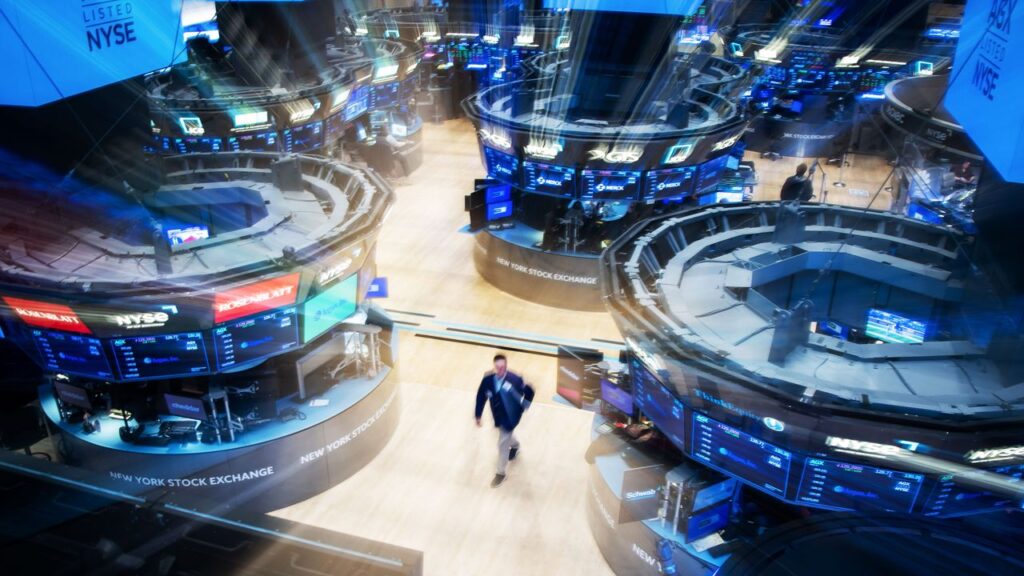The stock market is largely being propped up by a promise of AI that has yet to deliver—setting up what could be a disastrous bubble. But the AI land rush isn’t merely a risky gamble. Wall Street is staking the health of the markets—and that of the broader economy with it—on a bet against the common good.
It seems to be a lose-lose situation for those outside Wall Street and Silicon Valley: If the frenzied investment in artificial intelligence is overheated, as even OpenAI’s Sam Altman has warned, the markets could be hit hard enough to shake the economy as a whole—making an impact worse than that of the dot-com bust 25 years ago. But if the gamble pays off, it’ll mean a boom for a technology that could bring about widespread unemployment and social disruption.
“If this works as fast as VC money seems to be hoping, society seems wholly unprepared for the consequences,” as Daniel Barcay, executive director of the Center for Humane Technology, tells Vanity Fair, citing potential mass unemployment and political instability. “If the market is over its skis, then what we’re likely to see is a race to the bottom of these dark monetization patterns. We were promised curing cancer, but we’re getting AI slop.”
AI has already led to significant layoffs across a number of industries, including at Amazon, which announced it would slash 14,000 white-collar jobs last week. And Americans appear concerned that it’s just the beginning, with more than two thirds of respondents in a recent Reuters/Ipsos poll worrying that swaths of the workforce could be permanently displaced.
That’s for good reason: A report released by Senator Bernie Sanders last month (which ironically made use of ChatGPT) estimated that close to 100 million American jobs could be eliminated in 10 years by AI. Other reports have reached similar conclusions. And while not all the data is quite so pessimistic, purveyors of the technology themselves have warned about looming job losses: Dario Amodei, CEO of AI company Anthropic, cautioned in an interview with Axios earlier this year that the tech could get rid of half of all entry-level white-collar jobs. As he described the scenario, AI could mean “cancer is cured, the economy grows at 10% a year, the budget is balanced—and 20% of people don’t have jobs.”

